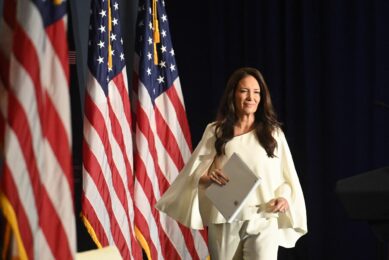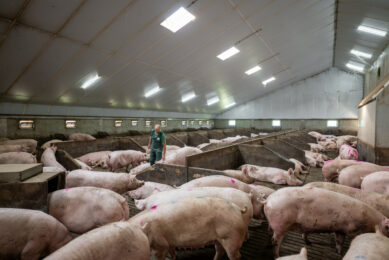Aurora expands pig plant to be Brazil’s largest

Aurora, a farmer cooperative in Brazil, has started up Brazil’s largest pig plant. The unity doubled its capacity in order to slaughter and process until 10,500 heads per day.
Earlier in October, the Cooperative Central Aurora presented, in Chapecó, Santa Catarina state, the largest pig slaughtering and processing plant in Brazil. An investment of about US$ 70 million was needed to double its capacity and be able to finish up to 10,500 head/day.
Exporting pork to many countries
The factory is the only one in Brazil that is able to export pork meat to the US as well as 20 other countries including China, Hong Kong, South Korea, Japan and Chile. Its 5,500 employees together take care of the production of 221 different meat products both fresh cuts, like chops and loins as well as processed ones (sausages and mortadella).
Opened in 1992, FACH 1 has been incorporating relevant technological advances over the last decades, such as humane slaughter by use of CO2 gas and robotic automation for several processes such as palletising, packaging and cooking.
The full FACH 1 potential of 10,500 head/day will be reached in the first half of 2020. That way, Aurora will step up its total production to 25,000 pigs/day, considering the total amount of 8 units for pork meat.
3rd largest meat group in Brazil
The Cooperative Aurora is the 3rd largest meat group in Brazil and unites 11 cooperatives. They also produce 1 million poultry in 7 factories and 1.5 million litres of milk on a daily basis, furthermore, pasta and vegetables.
“Our members, who built Aurora system, represent familiar farming. We show a success model for small farmers that can produce, grow and advance. Aurora involves thousands families.”
The cooperative includes 65,531 families (11,100 producers of pigs, poultry or milk) and have counted an annual income of US$ 2.3 billion in 2018 through a portfolio with 800 items for 60 countries.” – Mario Lanznaster, Aurora president

Minister of agriculture is present
The opening event was attended by Tereza Cristina, Brazil’s minister of agriculture, livestock and supply, and Márcio Lopes de Freitas, the president of Brazilian Cooperatives Organization (OCB).
During her statement, the minister defended the ‘self-inspection’ model for the sector and recognised structural insufficiency of the ministry to do that. She said, “Brazil has a good system, but the sector is so big that we need work together to do it even better. We will build together the best sanitary inspection system in the world.”












